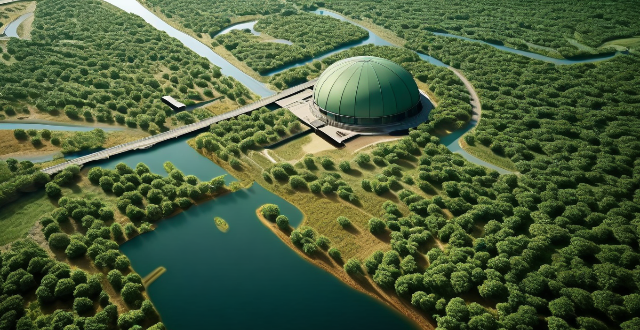Global warming is primarily caused by the release of greenhouse gases into the Earth's atmosphere, leading to an increase in the planet's average temperature. The main sources of these gases include burning fossil fuels, deforestation, industrial processes, agriculture, transportation, and waste. To mitigate global warming, it is essential to reduce the emissions of these greenhouse gases through various measures such as switching to renewable energy sources, improving energy efficiency, implementing carbon capture and storage technologies, promoting reforestation and sustainable land use practices, encouraging the development and adoption of low-carbon technologies, and supporting policies that reduce emissions.

What Causes Global Warming?
Global warming is primarily caused by the release of greenhouse gases into the Earth's atmosphere. These gases trap heat from the sun and prevent it from escaping back into space, leading to an increase in the planet's average temperature. The main sources of greenhouse gases are:
- Fossil Fuels: Burning coal, oil, and natural gas releases carbon dioxide (CO2) into the atmosphere.
- Deforestation: Trees absorb CO2, so cutting them down reduces this absorption and adds more CO2 when they are burned or left to decay.
- Industrial Processes: Manufacturing and other industrial activities produce various greenhouse gases.
- Agriculture: Livestock farming produces methane, a potent greenhouse gas.
- Transportation: Cars, trucks, ships, and planes burn fossil fuels, releasing CO2.
- Waste: Landfills produce methane as organic matter decomposes.
Key Points to Consider
- Carbon Dioxide (CO2): This is the most significant greenhouse gas, responsible for about three-quarters of the warming effect.
- Methane (CH4): Although methane concentrations are much lower than CO2, it is a more potent greenhouse gas and contributes significantly to global warming.
- Nitrous Oxide (N2O): This gas is emitted during agricultural and industrial activities and has a high global warming potential.
- Fluorinated Gases: Used in refrigeration and industrial processes, these gases have very high global warming potentials but are present in much smaller amounts than CO2.
- Black Carbon: Produced by the incomplete combustion of fossil fuels and biomass, black carbon particles absorb sunlight and contribute to warming.
- Chlorofluorocarbons (CFCs): Once widely used in refrigeration and aerosol sprays, CFCs were phased out due to their ozone-depleting properties, but they also have high global warming potential.
- Water Vapor: Water vapor is the most abundant greenhouse gas, but it is considered a feedback agent rather than a primary cause because its concentration in the atmosphere is largely determined by temperatures on Earth.
Mitigating Global Warming
To mitigate global warming, it is essential to reduce the emissions of these greenhouse gases through various measures such as:
- Switching to renewable energy sources like solar and wind power.
- Improving energy efficiency in buildings, appliances, and transportation.
- Implementing carbon capture and storage technologies.
- Promoting reforestation and sustainable land use practices.
- Encouraging the development and adoption of low-carbon technologies.
- Supporting policies that reduce emissions, such as carbon taxes or cap-and-trade systems.
By understanding the causes of global warming and taking action to reduce our impact on the environment, we can help slow the pace of climate change and protect our planet for future generations.